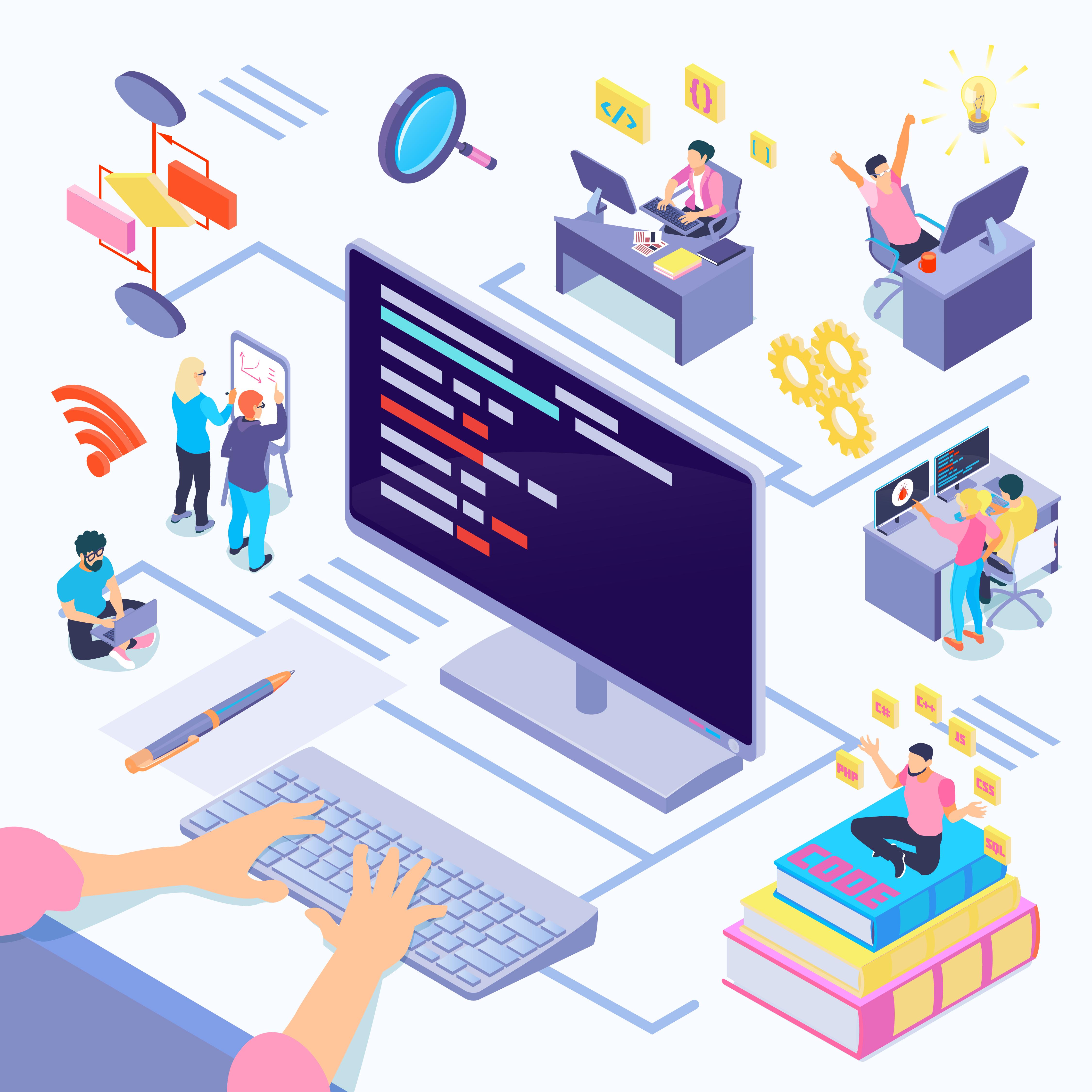A Brutal Truth for Every Developer

"The moment you think you've learned enough is the moment you start falling behind."
We live in a time where coding has become one of the most valuable and empowering skills on the planet. Whether you're building products, automating processes, analyzing data, or driving innovation—you’re writing the future in code.
But here’s the brutal truth that too many developers ignore:
Learning to code once is not enough.
Many developers fall into the trap of thinking that after finishing a bootcamp, getting a CS degree, or even landing their first dev job, the learning curve starts to flatten. They stop building outside of work. They stop experimenting. They stop practicing.
And slowly, silently, their edge fades.
If you're not constantly refining your skills—no matter how experienced you are—you're not staying the same.
You're decaying.
Here’s why consistent, deliberate practice is not optional. It's survival.
Cognitive science is clear: skills decay without repetition.
The brain prunes away knowledge it doesn’t use regularly. That clever bit of TypeScript magic, that closure concept in JavaScript, that SQL optimization trick you once mastered—they’ll all evaporate if you don’t actively use them.
Unlike theoretical knowledge, programming is procedural fluency. It lives in your muscle memory, in your intuition, and in your problem-solving reflexes.
The only way to keep it sharp? Keep using it.
You don’t need a crystal ball to see how fast tech evolves:
Angular became React.
REST gave way to GraphQL.
jQuery disappeared while Tailwind exploded.
Web2 is becoming Web3.
AI tools are rewriting workflows weekly.
If you’re not practicing:
You won’t just miss new trends—you’ll misunderstand them.
You’ll lack the context to integrate new tools into your workflow.
You’ll struggle to speak the evolving language of technology.
Today’s hot stack is tomorrow’s legacy code. Practicing keeps you fluent in the now.
Coding isn’t about syntax—it’s about systems thinking. Architecture. Trade-offs. Complexity management. Communication.
These aren’t abstract traits. They’re refined through real, regular reps:
Solving real-world problems (not toy examples)
Navigating ambiguity (not step-by-step tutorials)
Making decisions with consequences
Practice turns you from someone who knows into someone who delivers.
If you're not writing clean, modular, efficient code on purpose, you're reinforcing bad habits.
If you don’t practice debugging under pressure, you won’t perform under pressure.
If you never refactor, you’ll never master architecture.
Every line you write etches neural patterns into your brain. Every challenge you solve builds your mental library of heuristics.
Consistent practice isn’t just a routine—it’s identity formation.
Let’s be honest: job descriptions today are ridiculous. Companies want:
React, Vue, Angular, Laravel, React Native
SQL, NoSQL, GraphQL
AWS, Azure, GCP
Docker, Kubernetes, Terraform
Python, Go, Rust, PHP, Javascript
You won’t master them all—but you can train the skill of picking up tools quickly.
That agility? It only comes from consistent exposure, trial, failure, iteration. You can’t learn “adaptability” by watching YouTube.
You train for uncertainty by pushing into unfamiliar territory regularly.
AI is here. Copilot, ChatGPT, and dozens of tools now write code, refactor code, explain code.
What they can’t do yet:
Understand product vision
Navigate edge-case bugs in a legacy codebase
Collaborate with teams across departments
Architect secure, scalable systems
To stay irreplaceable, you need to go beyond what tools can do. That means mastering:
Deep problem analysis
Creative engineering solutions
Writing code with empathy for future developers
And mastery? You guessed it—it only comes through repetition, feedback, and practice.
One of the hidden killers of developer energy is boredom. When you're not practicing, you're not learning. When you're not learning, you're not growing. And when you’re not growing, you begin to feel stuck.
Practicing—even in small, playful ways—reignites curiosity. It reconnects you with why you fell in love with code in the first place.
It turns stagnation into satisfaction.
One day, you’ll be leading teams. Making tech decisions. Reviewing PRs that define how entire products work. The habits you build today will shape that version of you.
Do you want to be the engineer who can adapt, lead, and inspire?
Or the one who constantly plays catch-up, fearing every code review?
What you practice in private shows up in public.
Practicing doesn't mean working till midnight. It can be integrated sustainably into your life:
15 minutes a day of Leetcode, CodeWars, or HackerRank
Build micro-projects with new tools or APIs
Refactor old code with a fresh mindset
Pair program with someone better than you
Contribute to open-source or internal tooling
Teach what you know in blog posts or videos
It's not about burning out—it's about staying lit.
Whether you're a junior trying to break in or a senior with a decade of experience, the rule is the same:
Practice isn’t for beginners. It’s the mark of professionals.
The world doesn’t need more people who once learned to code.
It needs relentless learners. Curious builders. People who refuse to get comfortable.
So ask yourself:
Are you practicing to stay sharp—or coasting into complacency?
Coding is perishable—skills decay without use.
The tech world evolves daily. You either grow or get left behind.
Practice builds fluency, confidence, and true mastery.
Your career security lies in your ability to adapt and lead.
15–30 mins a day is enough to stay in the game.
Keep your keyboard warm. Your future depends on it.
Your email address will not be published. Required fields are marked *